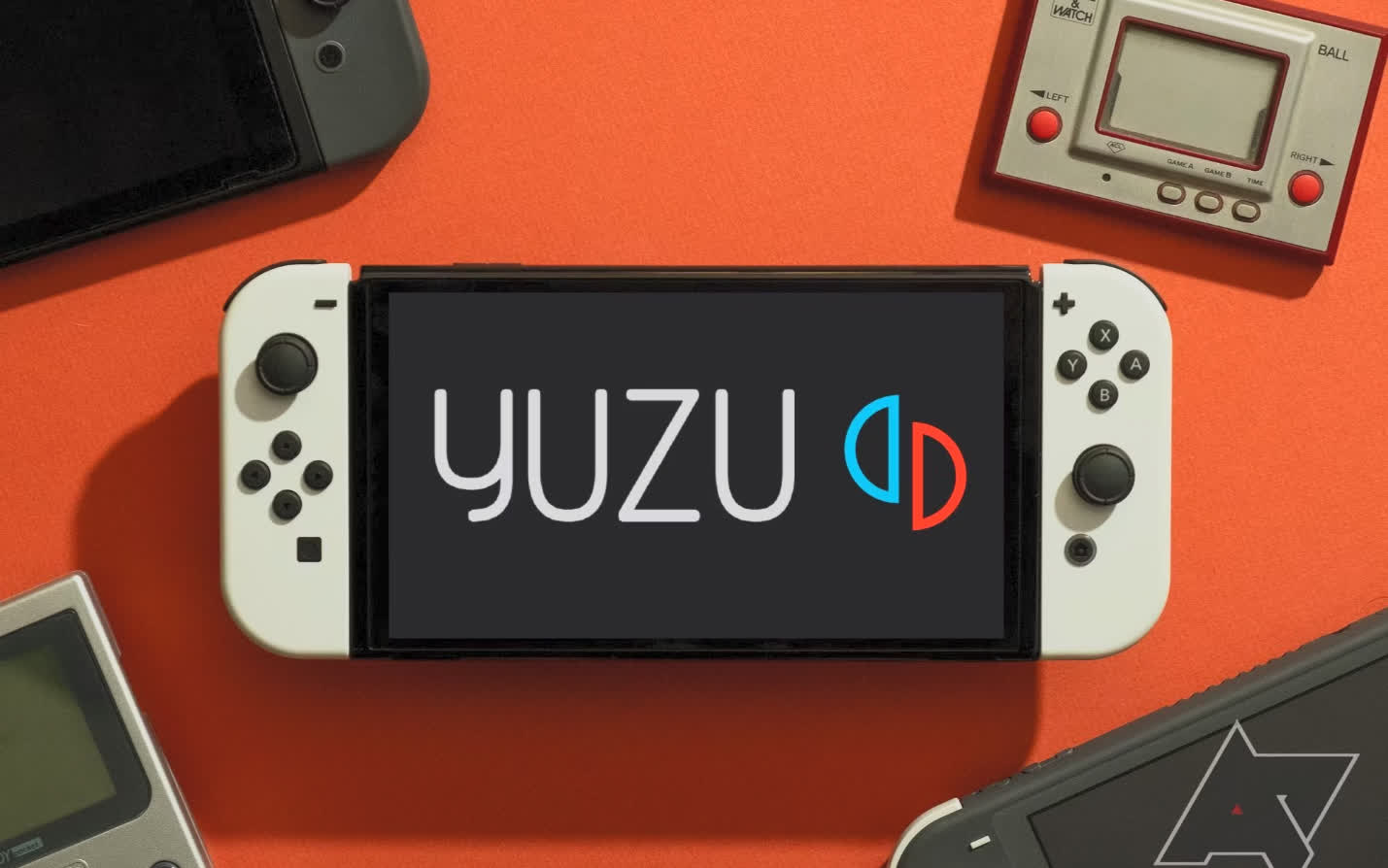What just happened? Nintendo's legal battle with the makers of Yuzu has ended just a week after it began. Tropic Haze, developer of the popular open-source Switch emulator, has agreed to pay Nintendo $2.4 million and cease all operations in a move that will also see support for 3DS emulator Citra discontinued.
Lawsuit-loving Nintendo launched legal action in US federal court against Tropic Haze last week. It alleged that the Yuzu emulator violates the anti-circumvention and anti-trafficking provisions of the Digital Millennium Copyright Act (DMCA), and that it is primarily designed to break the several layers of Switch encryption so users can play copyrighted Nintendo games.
Tropic Haze said over the weekend that it would be responding to Nintendo's suit within 60 days. According to a new filing, both parties have now reached an agreement that essentially gives Nintendo the win: Tropic Haze will be paying the Japanese giant $2.4 million – pending the court's final approval – and admitted that Yuzu is "primarily designed to circumvent and play Nintendo Switch games."
Tropic Haze must also permanently cease working on Yuzu, hosting the emulator, and distributing its code or features. Even hosting websites and social media that promote the emulator isn't allowed. The injunction also applies to "other software or devices that circumvent Nintendo's technical protection measures," which means 3DS emulator Citra is suffering the same fate. The source code for both Yuzu and Citra have already been removed from GitHub, and all posts bar one have been deleted from Yuzu's and Citra's X/Twitter accounts.
[yuzu]
– OatmealDome (@OatmealDome) March 4, 2024
The yuzu git repository on GitHub has been deleted, along with all build downloads. pic.twitter.com/Ypn665plCv
Finally, Tropic Haze has to hand over its website domain names to Nintendo, delete its copies of Yuzu and "all circumvention tools used for developing or using Yuzu – such as TegraRcmGUI, Hekate, Atmosphère, Lockpick_RCM, NDDumpTool, nxDumpFuse, and TegraExplorer," and hand over any physical circumvention devices and modified Nintendo hardware to Nintendo, writes The Verge.
Tropic Haze wrote about the filing on the company's Discord channel. "Yuzu and Yuzu's support of Citra are being discontinued, effective immediately. Yuzu and its team have always been against piracy. We started the projects in good faith, out of passion for Nintendo and its consoles and games, and were not intending to cause harm," it explained.
"But we see now that because our projects can circumvent Nintendo's technological protection measures and allow users to play games outside of authorized hardware, they have led to extensive piracy. In particular, we have been deeply disappointed when users have used our software to leak game content prior to its release and ruin the experience for legitimate purchasers and fans."
– yuzu (@yuzuemu) March 4, 2024
The part about leaking game content will undoubtedly refer to The Legend of Zelda: Tears of the Kingdom. Nintendo highlighted this example in its lawsuit against Tropic Haze. It noted that when the game leaked two weeks before the May 12 release date last year, it was downloaded more than 1 million times, and about 20% of the download links pointed people to Yuzu.
"We have come to the decision that we cannot continue to allow this to occur," Tropic Haze's statement continued. "Piracy was never our intention, and we believe that piracy of video games and on video game consoles should end. Effective today, we will be pulling our code repositories offline, discontinuing our Patreon accounts and Discord servers, and, soon, shutting down our websites. We hope our actions will be a small step toward ending piracy of all creators' works. Thank you for your years of support and for understanding our decision."
It's unclear if the settlement will impact other Nintendo emulators. Yuzu does not contain Nintendo's keys – users need to supply their own "illegally-obtained" copies of prod.keys that decrypt an encrypted Switch game ROM – but Nintendo says this doesn't matter as the software is primarily designed for the purpose of circumventing technological measures.
In May last year, just before its scheduled arrival on Steam, Nintendo's vague legal threat stopped the release of the Wii/GameCube Dolphin emulator on Valve's platform.
